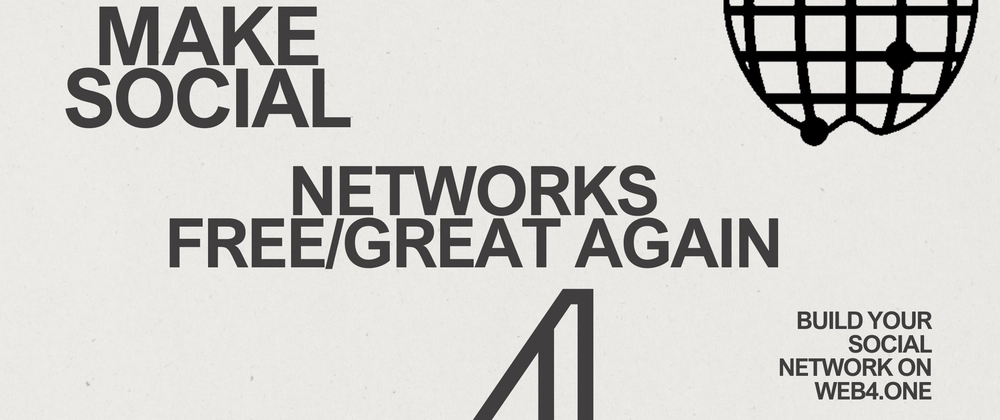In today’s digital world, social networks have become an integral part of our daily lives. However, what once promised to be an open space for free expression and human connection has turned into a dystopian ecosystem ruled by a handful of powerful corporations. These platforms, designed to keep us engaged, have shifted from fostering genuine communication to manipulating our interactions for profit. The result? A broken social media landscape characterized by invasive surveillance, algorithmic manipulation, censorship, and an overwhelming lack of transparency.
The Downfall of Centralized Social Media
The dominance of centralized social networks has led to a system where user data is the most valuable currency. Platforms like Facebook, Instagram, and Twitter (now X) collect every possible piece of information about users—interests, behaviors, conversations, and even location data—to optimize engagement and sell advertising. This relentless data harvesting has not only eroded privacy but has also fueled misinformation, algorithm-driven polarization, and a deepening societal divide.
The business model behind these networks is simple: maximize user screen time to increase advertising revenue. To achieve this, algorithms are programmed to push content that triggers strong emotional reactions, often favoring sensational, divisive, or even misleading information. Instead of facilitating open and constructive discussions, these networks create echo chambers where users are only exposed to information that reinforces their existing beliefs.
Moreover, centralized platforms hold absolute power over content moderation and policy enforcement. Whether it’s arbitrary bans, shadowbanning, or content manipulation, these companies act as gatekeepers of information, deciding what billions of people can or cannot see. The lack of transparency in these decisions further amplifies the mistrust users have towards these platforms.
A New Path: Decentralization and User Empowerment
The failures of traditional social media have given rise to a new movement—one that seeks to return power to the users. Decentralization offers an alternative model where control is no longer concentrated in the hands of a few tech giants. Instead, it redistributes governance, giving individuals full ownership over their data, digital identities, and online interactions.
This is where Web4 and the Social Network as a Service model from Linkspreed come into play. Unlike traditional platforms that profit from user data, Web4 reimagines social networking by prioritizing transparency, user sovereignty, and community-driven governance. Instead of a single authority controlling algorithms and policies, decisions are made collectively, ensuring a more democratic and user-centric approach.
The Social Network as a Service model from Linkspreed further enables individuals, businesses, and communities to create their own independent social networks, free from corporate control. This means no more censorship, no intrusive advertising models, and no secret algorithms designed to exploit user behavior. It empowers users to engage with social media on their own terms, ensuring privacy, security, and true digital freedom.
By embracing decentralization, we can create a more ethical and transparent digital world—one where users are no longer the product but the true owners of their online experience.
For those looking to explore this transformative shift, visit:
🌐 Linkspreed: https://linkspreed.com
🌐 Web4: https://web4.one
The Future of Social Networking: A Call to Action
Making social networks “free” again isn’t just about removing paywalls or introducing open-source alternatives. It’s about restoring the fundamental principles of the internet—privacy, free speech, transparency, and user autonomy. The era of Big Tech dominance has proven that centralized control leads to exploitation, and unless we take action, the situation will only get worse.
The shift towards decentralized networks is more than a technological revolution—it’s a social movement. It challenges the status quo, demands accountability, and redefines how we interact online. The opportunity to build a better, more inclusive digital space is within reach, but it requires collective action and awareness.
We must move beyond the exploitative systems of today and embrace a digital future where social networks truly serve the people. The time to act is now.
For a deeper discussion on this topic, check out our podcast episode:
🎙️ Listen here: https://youtu.be/E6ThJjSIbSE



Top comments (0)